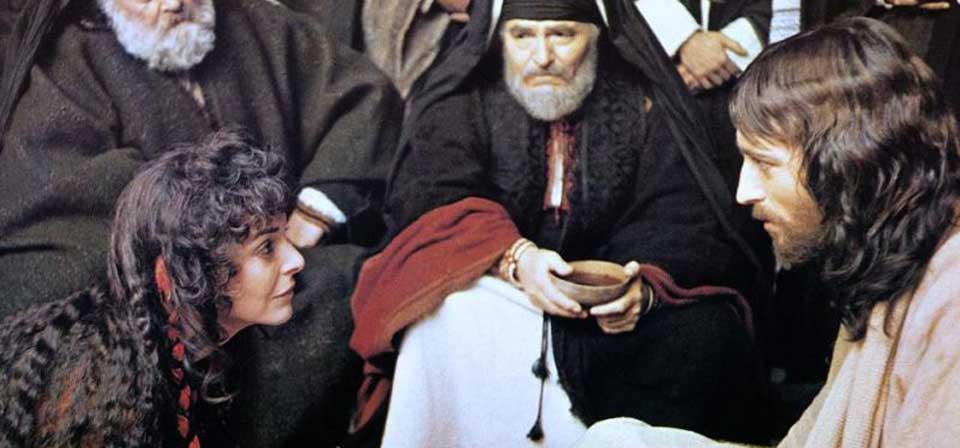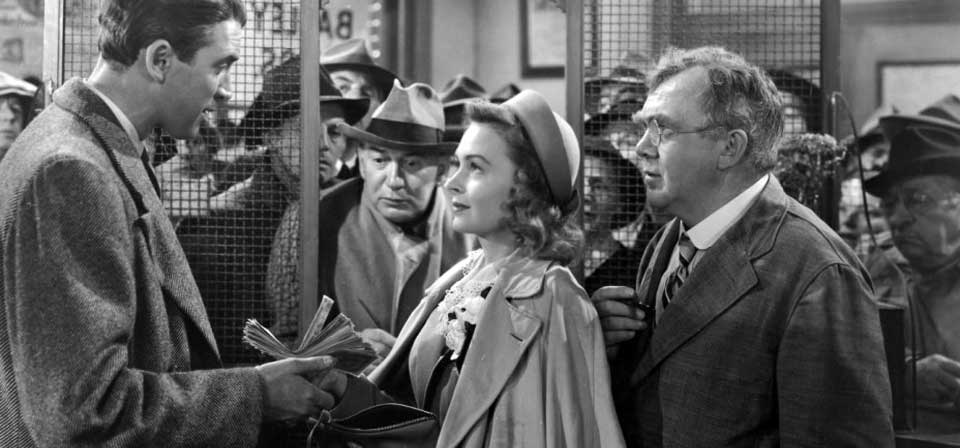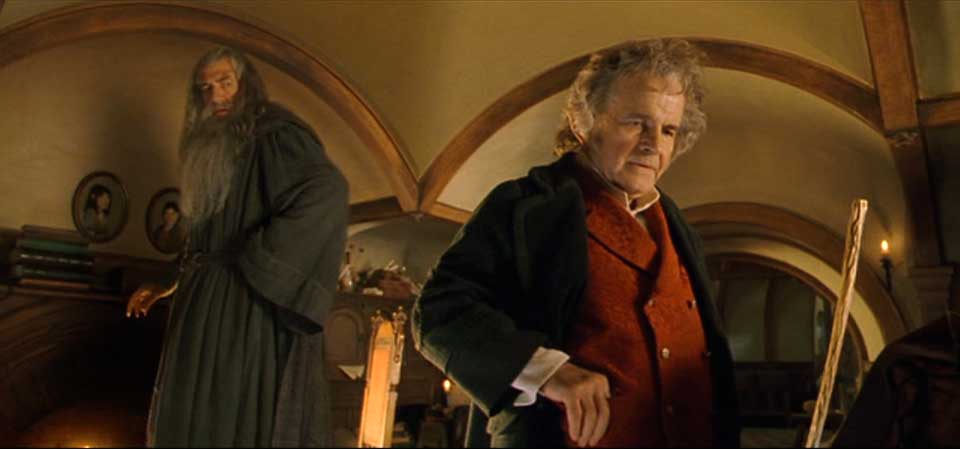Search Results
116 records found
Shadowlands (1993)
Anthony Hopkins plays “Jack” as a somewhat abstracted ivory-tower academic rather than the robust and jovial figure he actually was. But Lewis’ penetrating intellect and faith are here, as is his love for Joy (Winger), and the crippling grief that came afterwards. A challenging and inspiring film.
A Walk to Remember (2002)
Like its heroine Jamie, A Walk to Remember is pious, wholesome, and eminently open to mockery and derision. Also like its heroine, it doesn’t care what people think of it.
Life is Beautiful (1997)
Contriving to hide the boy from camp officials (who soon put the other children to death), Guido tells Giosue that the concentration camp is actually an elaborate role-playing game in which the "players" are competing for points in the hopes of winning a real battle tank. From then on, Guido will take any risk, court any danger, to maintain his son’s illusion that none of it is real.

Jesus of Nazareth (1977)
After the four Gospels, if one text is more influential than any other in the tone of Jesus of Nazareth, it might be the Vatican II declaration on the Church in relation to non-Christian religions, Nostra Aetate, a watershed document in Jewish-Catholic relations.
The Lord of the Rings: The Return of the King (2003)
It’s hard to overstate the soaring achievement of Peter Jackson and company in The Return of the King, the third and final chapter of their historic adaptation of The Lord of the Rings. To call it the grandest spectacle ever filmed is no exaggeration; it may also be the most satisfying third act of any film trilogy, completing what can now be regarded as possibly the best realized cinematic trilogy of all time.
Frequency (2000)
This is a film about the legacy of fatherhood and the inheritance of sonship, about the unbreakable connection and the unbridgeable gap between one generation and the next. It is a celebration of masculinity, but it contemplates how men relate to women as an index of their manhood.
Born into Brothels (2004)
Born into Brothels both illustrates and exemplifies the power of art and artists to make a difference. It’s one of the most constructive and inspiring takes on the relationship of art and responsibility, of the artist and the world, that I’ve ever seen.

It’s a Wonderful Life (1946)
The truth is that It’s a Wonderful Life is both darker and more subversive than its popular reputation as cheery holiday “Capra-corn” would suggest, and more robustly hopeful than cynics and hipster deconstructionists would have it.

The Lord of the Rings: The Fellowship of the Ring (2001)
There can be no more fitting tribute to Peter Jackson’s The Fellowship of the Ring than to apply to it the words with which C. S. Lewis acclaimed the original book when Tolkien first wrote it: “Here are beauties that pierce like swords or burn like cold iron; here is a [film] that will break your heart.”
Sister Helen (2002)
God bless Sister Helen Travis, with her foul
mouth, black wimple, "I ♥ Jesus"
The Seventh Seal (1957)
Starkly existential, boldly poetic, slow and grim, Ingmar Bergman’s great classic The Seventh Seal has haunted film aficionados, baffled and bored college students, inspired innumerable parodists, and challenged both believers and unbelievers for nearly half a century.
The Count of Monte Cristo (2002)
Like The Mask of Zorro, Monte Cristo balances its anachronistic sensibilities and over-the-top set pieces with genuine emotion and a real moral dimension — even, in Monte Cristo, a spiritual dimension. This is an action movie that’s also a morality play, a tale of injustice and vengeance that actually reckons on God, faith, and divine justice.
From the Manger to the Cross (1912)
The art of cinema had advanced dramatically in the few years between the two films, and From the Manger to the Cross is far more sophisticated — though I actually find the earlier, more primitive Life and Passion more effective. Even so, both are worthwhile, and they make a good double bill.
Joseph: King of Dreams (2000)
Joseph’s own dreams — the two biblical ones plus an extra one — are the best; I caught my breath at the first glimpse of these dreams, which look like living, flowing Van Goghs. The dream-sky swirls like Starry Night, and the grass ripples under the dream-Joseph’s feet like ripples in a pond. The dreamlike quality of these sequences is undeniable and memorable.
The Straight Story (1999)
We hear a few anecdotes about Alvin’s life, but nothing meant to make us say, "Aha — so that’s why…" The only "explanation" comes in the very last moments of the film, when we finally see for ourselves the point of Alvin’s determination to make the journey his own way; why he couldn’t accept a kind stranger’s offer to drive him the rest of the way.
Dead Man Walking (1995)
Tim Robbins argues his point fearlessly, not taking the easy way out, not stacking the deck by emotionally manipulating the audience, but instead taking a worst-case scenario: Rather than giving us a murderer who isn’t really so bad, merely misunderstood and mistreated and so forth, Robbins gives us a thoroughly revolting individual, one who spouts racist propaganda not because he believes it but simply because it is shocking and antisocial and hateful; who tries to humiliate the one person interested in his welfare with leering come-ons aimed at her consecrated chastity.
Thérèse (1986)
Alain Cavallier’s stark, austere reflection on the mystery of the little saint of Lisieux’s romance with Jesus… is a reverie rather than a meditation, built of fleeting minimalist vignettes, almost snapshots, glimpses of its subject rather than an integral portrait. There is no sense of judgment, of approval or disapproval of its subject’s life, or even, finally, of real understanding. His Thérèse is a riddle, and we must make of her what we can.
Gandhi (1982)
Overshadowing even Ben Kingsley’s astonishing, transcendent performance in his first major screen role is a larger, more formidable presence: that of Mohandas K. Gandhi himself.
Dersu Uzala (1975)
Vladimir Arseniev was an early 20th-century explorer who mapped much of the krai territory of the Russian Far East and studied its indigenous peoples. Based on his memoirs, Akira Kurosawa’s Dersu Uzala tells the story of an unusual friendship between Arseniev (Yuri Solomin) and the nomadic tribal hunter for whom the film is named (Maksim Munzuk).
The Tree of the Wooden Clogs (1978)
Critic Dave Kehr of the Chicago Reader calls The Tree of the Wooden Clogs "less an advance over the standard film festival peasant epic than an unusually accomplished rendition of it," and speaks of a "Marxist sentimentalism" inherent in its subject matter and approach. This seems to me misleading. Olmi’s film may be best thought of, not as an attempted advance over the typically Marxist neorealist peasant epic, but as a redemption of it.
Recent
Home Video
Copyright © 2000– Steven D. Greydanus. All rights reserved.